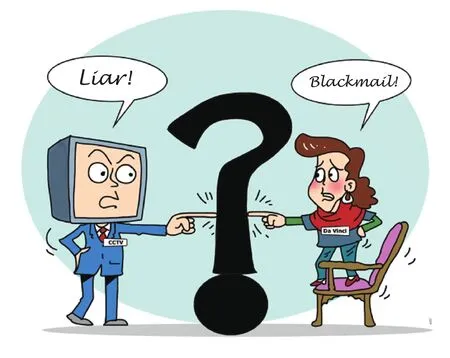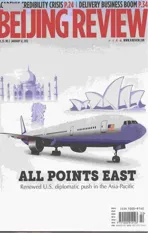The Unsocial Network
2012-10-14SocialmediaprovideswealthofopportunitiesandrisksinpromotinggoodsandservicesByJonathanPoston
Social media provides a wealth of opportunities, and risks,in promoting goods and services By Jonathan Poston
The Unsocial Network
Social media provides a wealth of opportunities, and risks,in promoting goods and services By Jonathan Poston

One American event organizer who used Facebook to successfully promote and recruit sponsors for an annual Turkey Trot 5k charity run unfortunately fell into one of the many pitfalls of social media.Publicly thanking sponsors is the appropriate thing for event officials to do, especially when the contribution is hundreds of dollars.But when Turkey Trot organizers publicly thanked a major Christian conference center sponsor that had (unknowingly to organizers)hosted a gay recovery group (a faux pas since gay rights is a very sensitive political issue in the United States), a fan made a nasty comment protesting the sponsor’s involvement in the event. It was deleted but more quickly took its place. When all the offending comments were deleted, and offenders were banned, protestors then used Facebook to rally a boycott group, which eventually forced organizers to drop the controversial sponsor.
For businesses, one might assume the answer is avoiding anything politically charged, but organizations like the Turkey Trot have found that no matter how neutral the intent, social media protestors can fi nd a reason to disrupt business if they fi nd it will bolster their cause.
Organizations around the world are using social media to promote movies, books,outdoor events, theater performances, and an array of cultural activities. Some are welcoming social media as a savior while others view it with skepticism.
As print advertising becomes a tool of the past—and an expensive one at that—companies are turning to the Web to promote their products. The problem is that there is only so much of the budget to allocate to Internet marketing, causing promoters to opt for free social media pages to promote whatever they’re trying to market.
Social media’s effectiveness, and risks,have also been illustrated in China’s many social domains, including Tencent QQ, Sina Weibo, Kaixin, Youku and Douban.
Take for example the 2011 scandal where Sina Weibo appealed to a wide swath of netizens on behalf of Da Vinci Invest PTE Ltd.,a Singapore-based Chinese luxury furniture retailer. Da Vinci was accused of passing off China-made furniture as luxury Italian furniture and selling it to the Chinese market, when in fact it may have really been made in China.The story broke when CCTV released an undercover story exposing the alleged scam.Da Vinci shot back that a CCTV reporter had extorted large sums of payoff money from Da Vinci to suppress damaging footage at the end of 2011. Of course denials proliferated on both sides. But the issue is that social media networks like Sina Weibo can surreptitiously take sides, and netizens can become judge and jury based on manipulated bits of information.

Even if social media proves to be a useful tool in crisis management, there are obvious moral shortcomings when platforms like Sina Weibo are open to siding with accused companies like Da Vinci. Imagine how established companies like Da Vinci could use their money and influence to turn netizens against competitors, not to mention the moral implications of whether social media platforms should be allowed to manipulate public opinion under the veil of artifice. With such unregulated power in the hands of millions,and perhaps one day billions, of Chinese netizens, who is to say which side they will support.
Furthermore, a company that employs social media for crisis management, or to atomize the competition, takes into account the fall-out risks of negative legal and media threats that follow.
While social media offers a clear path for freedom of speech advocates, organizations using social media for marketing purposes cannot feel 100 percent con fi dent that an instantaneous mass social media demonstration isn’t lurking around the corner. Once attacked,it can be a devastating blow to any organization’s reputation. And to make matters worse,the spark behind the explosion may originate from false, inaccurate, or blatantly manipulated sources.
Another major threat to marketers using social media is censorship and copyright laws.An example of how censorship laws can pose challenges was illustrated when one U.S. university, which wishes to remain anonymous,considered marketing their degree programs internationally on Facebook last year. They quickly learned that Facebook (along with Twitter and Youtube) are not accessible in China. To effectively move forward with those plans using a VPN or proxy to circumvent censorship blocks may have even risked their partnership agreement, so the efforts were put on hold.
Censorship violation risks aren’t always protected by borders either. For example,according to National Public Radio, a U.S.citizen who, while on American soil, posted Twitter links to a banned biography about Thailand’s royal family, was later imprisoned while visiting the Southeast Asian country.
The same gray area exists for copyrights.A photo copied from an Internet site in China might be fine to use in China, but because social media content access doesn’t naturally hew to border controls, that same photo may be subject to international lawsuit by parties in the United States or elsewhere.
With these most eminent risks in mind, it is prudent to carefully weigh the hazards before making the move to adopt social media as a principle marketing strategy.
While the risks are large, every marketing channel carries liability. Contracting with a social media expert can help mitigate many pitfalls, and most organizations fi nd it’s worth a try to see if social media is feasible for their purposes.
By no means should social media be seen as the future of marketing. It’s just another tool in the box, and should be mobilized only when deemed feasible, and always with caution.
The author is a marketing specialist at Fastpivot.com and provides business seminars for organizations around the world
